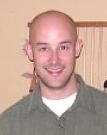 If you take anything away from Tom Curley's American-Canadian Tour driver's meetings, it's what sounds like a mantra.
If you take anything away from Tom Curley's American-Canadian Tour driver's meetings, it's what sounds like a mantra."We are not NASCAR."
Curley laments almost all things NASCAR -- in particular, he's not fan of the bump-and-run pass that has become commonplace in Cup Series events on short tracks. "That's not racing," Curley told a group of drivers before a race earlier this season.
Ironic, though, for a series founded on anti-NASCAR principles, that the kind of points racing that leaves NASCAR teams downright giddy is exactly the kind of points racing it takes to win an ACT championship. Winning isn't even close to being the most important thing -- just finishing in the top-10 every week is.
Exhibit A: Jean-Paul Cyr. Cyr won his series-record 7th championship on Saturday at Oxford Plains Speedway, and his series-record 5th straight title. And he did so without a single trip to victory lane. In 1994, the year of Cyr's first title, he won 1 race, the fewest during a championship run, according to ACT PR man Justin St. Louis.
The key to claiming the '07 crown, in Cyr's own words, "We were pretty consistent. We top-5'ed and top-3'ed them to death."
Still, Cyr was disappointed at not having won this season. He finished 2nd on 2 occasions -- at Oxford in the season opener in April and at Seekonk Speedway in early August -- and talked about the 2 events at White Mountain Motorsports Park he felt like he dominated without results.
"I'm the one that likes to win as many races as I can," said Cyr, whose 18 career wins put him second behind Brian Hoar (23). "We're second all-time in ACT as far as wins go, but I'd rather be first. We've been off our game a little bit this year. We spent the year experimenting and trying new things -- but I guess the old things were pretty good."
Cyr may not be happy about the manner in which you need to race to win an ACT championship, but the fact remains that with evenly-matched teams running spec equipment in heavily-handicapped starting fields, points racing is the only way to work toward a championship. Teams simply aren't going to dominate by winning 1/3 or 1/2 of the races on the schedule.
Strange was it to see Cyr's final shot at victory come at a track he has a love-hate relationship with. After years of the Thunder Road Milk Bowl being the series' finale, this year that honor went to Oxford. Even though Cyr has never won at Oxford, he thought it a fitting finish for the series.
"I'm used to it all being done at the Milk Bowl and not having to worry anymore," Cyr said. "But with the '250' being here, and us being able to participate in that now, I kind of felt it was fitting that this would be the last points race of the year."

3 comments:
well being NASCAR isn't such a bad thing. You can't be original when what you do came from something else.
Go tell Patrick Laperle racing for ACT championships means settling for top 10s instead of wins. Ben Rowe could have found himself in the thick of the ACT championship with 4 wins last year if he had chosen to run all the races.
I wouldn’t say ACT was founded on anti-NASCAR principles (excluding time trials & counting caution laps), although ACT was born out of the fact that NASCAR decided to leave the North series high and dry, much like most of the other NASCAR short track series that are no longer around.
Of course on the other end of the spectrum you have ISMA with Chris Perley winning about ¾ of the shows, but the reviews I have heard of ACT races this year are a lot more favorable than I have heard of ISMA shows.
One closing point: how many top 3s did Cyr have this year and how many wins did 2nd place point man Scott Payea have?
I don't recall ever saying that ACT racing was bad, and I certainly wouldn't suggest its worse than ISMA -- thanks for putting words in my mouth.
But you'll have a hard time convincing me that a series with only 2 drivers in its HISTORY reaching double-digit victories encourages racing for wins more than racing for good finishes.
Tom Curley is a big proponent of the "if it's your day, it's your day -- and if it's not, get what you can get" philosophy. He's said as much in the driver's meetings I've attended.
And I'm not saying there's anything wrong with that, either. It's just the way it is.
TB
Post a Comment